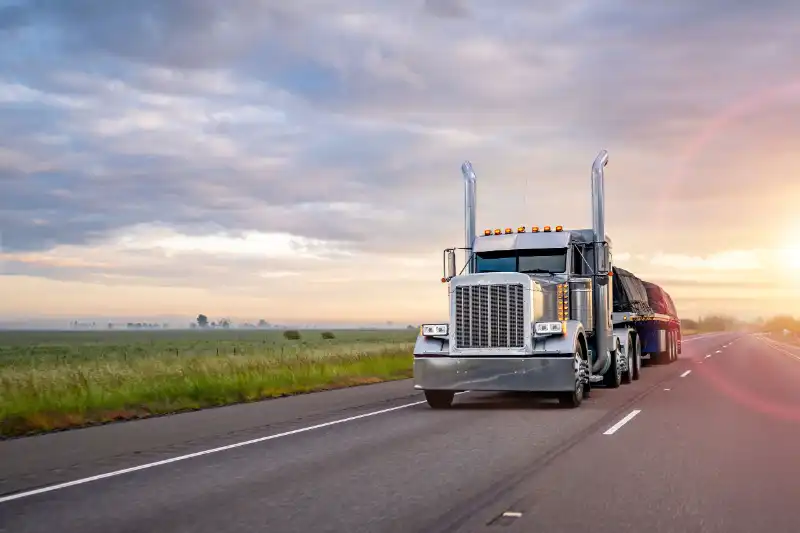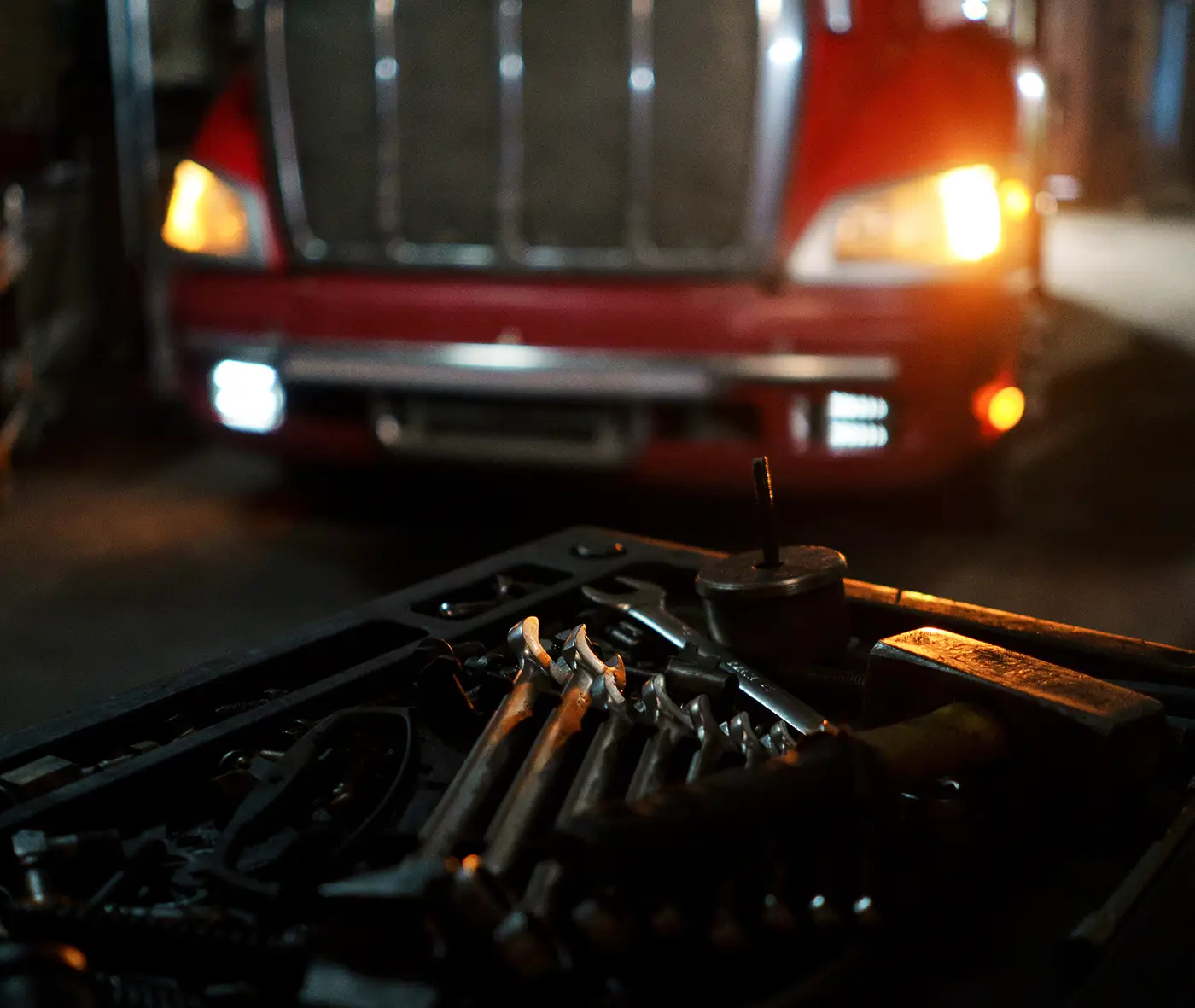.jpeg)
Diagnosing And Repairing Axle Bearing Noise In Heavy-Duty Trucks
Diagnose and repair axle bearing noise in heavy-duty trucks for peak performance and reliability. Learn symptoms, causes, and preventive measures.

Reliability and performance are paramount for heavy-duty trucks, which is why even the slightest anomaly can become a significant concern. One such issue that often demands immediate attention is axle bearing noise. The distinctive rumbling or grinding sounds emanating from your truck's axles can be an early warning sign of potential problems.
In this comprehensive guide, we'll delve deep into diagnosing and repairing axle bearing noise in heavy-duty trucks, ensuring that your rig continues to operate at peak performance.
Understanding Axle Bearings
To comprehend why axle bearings are so crucial, we must first recognize their role in the grand scheme of heavy-duty truck mechanics. These unassuming components are the linchpins of the axle system, facilitating smooth wheel rotation while bearing the weight of the entire vehicle. There are various types of axle bearings, such as axle wheel bearings, axle shaft bearings, and more, each with a specific function. These silent workhorses are responsible for maintaining the integrity of your truck's axles, and when they become noisy, it's a sign that something needs your attention.
Symptoms of Bad Axle Bearings
Axle bearing noise is rarely subtle. It announces its presence with distinct warning signs, and as a vigilant truck owner or fleet manager, you should listen carefully for these indicators:
- Grinding or Rumbling Noise: The most telltale sign of axle bearing issues is the unmistakable grinding or rumbling noise that emanates from the affected wheel or axle. This noise typically grows louder as you increase speed and may change in pitch or intensity when turning.
- Vibrations in the Steering Wheel or Chassis: Axle bearing problems often manifest as vibrations in the steering wheel or chassis. If you notice unusual vibrations while driving, particularly at higher speeds, it's worth investigating.
- Uneven Tire Wear: Bad axle bearings can also result in uneven tire wear, which can be visually observed. Check your tires for signs of irregular wear patterns, such as cupping or feathering, as this could indicate a bearing issue.
The Diagnostic Process: Pinpointing the Culprit
Diagnosing axle bearing noise requires a methodical approach to ensure accurate identification. Here's a step-by-step guide:
- Visual Inspection: Begin with a visual inspection of your truck's axles. Look for any signs of leakage, damage, or loose components. Pay close attention to the axle bearing area for any visual abnormalities.
- Road Test: Take your truck for a road test, paying close attention to the noise. Note when the noise occurs—whether it's during acceleration, deceleration, or turns. This can provide valuable clues about the issue's origin.
- Suspension and Wheel Inspection: Investigate the suspension and wheels, as problems in these areas can sometimes mimic axle bearing noise. Ensure that your suspension components and wheels are in good condition.
While these steps can provide valuable insights, it's essential to seek professional diagnosis from experienced mechanics for a conclusive assessment.
Causes of Axle Bearing Noise: Uncovering the Culprits
Axle bearing noise doesn't manifest out of thin air; there are underlying causes that demand attention:
- Lack of Lubrication: Inadequate lubrication is a common culprit. Axle bearings require proper lubrication to function smoothly. If lubrication levels are low or contaminated, friction increases, leading to noise and potential damage.
- Contamination: Dirt, debris, and water infiltration can compromise the integrity of axle bearings, leading to noise and wear.
- Wear and Tear: Over time, axle bearings naturally wear down. Excessive use, heavy loads, and harsh conditions can accelerate this wear, resulting in noise.
Repairing Axle Bearing Noise
Once you've recognized bad axle bearing symptoms and identified the source of the axle bearing noise, it's time to address the issue head-on. The repair process typically involves:
- Axle Bearing Replacement: Damaged or worn bearings must be replaced with high-quality, suitable replacements. This process requires precision and expertise to ensure proper installation.
- Axle Inspection and Maintenance: While addressing the bearings, it's wise to inspect the entire axle for any additional issues. Maintenance tasks such as cleaning, lubrication, and sealing may also be necessary.
- Axle Bearing Grease and Sealing: To prevent future issues, ensure that the axle bearings are adequately lubricated and sealed against contaminants.
For a successful repair, it's imperative to rely on the expertise of professional mechanics and to use high-quality replacement parts.
Preventive Maintenance: The Key to Silence
Prevention is often the best remedy. To avoid the annoyance and potential damage caused by axle bearing noise, consider these preventive measures:
- Regular Lubrication: Implement a schedule with a local truck oil and fluid service provider for regular axle lubrication, ensuring consistent performance.
- Inspections: Include axle bearing inspections as part of your routine maintenance. Catching issues early can prevent them from escalating.
- Maintenance Schedule: Create a comprehensive preventive maintenance schedule with a trusted truck PM service shop that encompasses all critical components of your heavy-duty truck, including the axles.
Cost Considerations
Addressing axle bearing noise may come with associated costs, including replacement parts and labor. However, it's essential to view these expenses as investments in the longevity and reliability of your truck. Delaying repairs can lead to more significant issues and higher costs down the road.
DIY vs. Professional Repairs
While some truck maintenance tasks can be tackled by experienced DIY enthusiasts, axle bearing noise diagnosis and repair are best left to professionals. Heavy-duty truck axle systems are complex, and proper repairs require specialized knowledge and tools. Choosing professional truck axle repair services ensures the job is done right the first time, saving you time, money, and frustration.
Final Words
In the world of heavy-duty trucks, silence is golden. Axle bearing noise may start as a mere annoyance, but it can quickly escalate into a major issue if left unaddressed. As a responsible truck owner or fleet manager, it's crucial to listen for the telltale signs, diagnose the problem accurately, and entrust the repair process to experienced professionals. By doing so, you'll ensure that your heavy-duty truck continues to operate at its best, ready to conquer the road ahead.
More Articles

Why Is Regular Fleet Maintenance Crucial for Business Success?

5 Mistakes to Avoid When Choosing a Repair Shop

Maximize Your Fleet Uptime with Proactive Maintenance!
Contact Us
Visit our full-service truck & trailer repair shop in Colona, Illinois, or take advantage of our mobile services offered throughout the Quad Cities area, including Moline & Rock Island, IL & Davenport & Bettendorf, IA. Give us a call, drop by the shop, or fill out our service request form!


